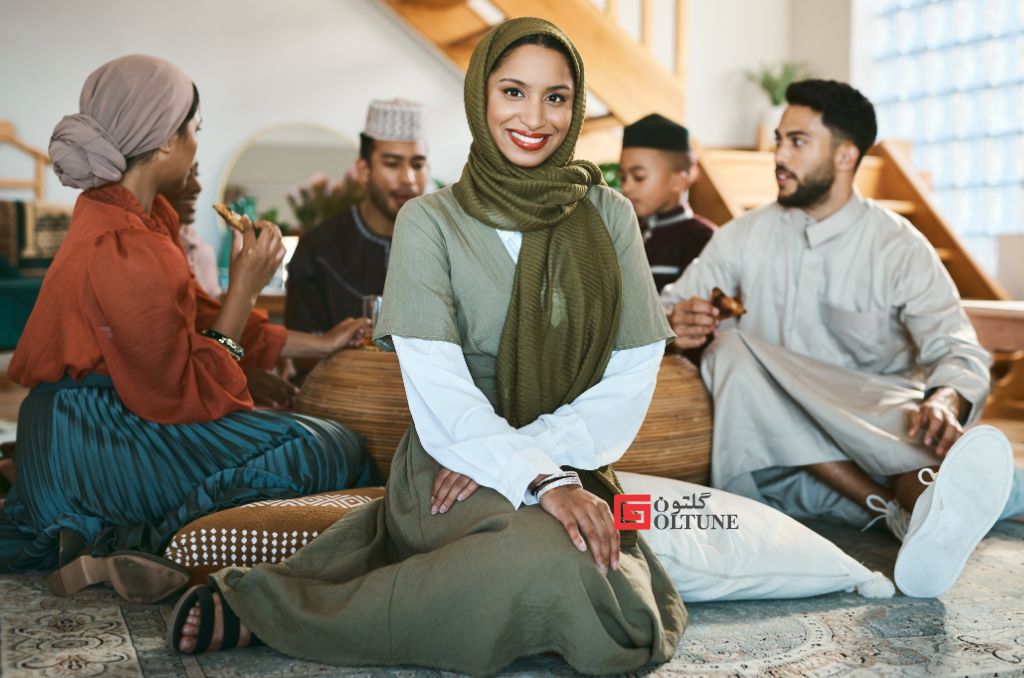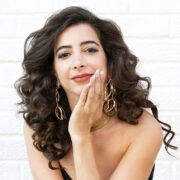
| Part one | Part two | Part three | Part four |
Reem, the PhD student and main producer for Inside Islam, put a program together about Islamophobia. She booked two eloquent scholars who would unfold the concept and consequences of Islamophobia. Jean Feraca, the executive producer and host of the show, pulled off a marvelous conversation. Our team eventually won a prestigious Gabriel Award that year, an award honoring the most uplifting stories.
The program that we produced about Islamophobia painted a picture of how we in the United States view Muslims. But what about Muslim happiness, I wondered?
The Western media does a terrible job of featuring Muslims. Inside Islam was a drop in the ocean of misconceptions about Muslims. Yet, I wanted to talk about Muslim happiness. I wanted to show that a Muslim can be liberal, open-minded, educated, supportive of women, and happy. I wanted to zoom out to show the whole picture. That’s what I really wanted to do — to show pictures.
I was one week through the beginning of Ramadan in 2013 when I called one of my friends at Wisconsin Public Radio and asked if she knew any photographers in town. “One of my friends does photography,” she said. “Let me talk to him and get back to you.”
I was connected with Nicholas. “I want to take pictures of the people coming to the Eid al-Fitr celebration on August 7 or 8,” I said. “So, you want me for two days?” he asked. “Not really,” I replied with reservation. “Muslims follow the lunar calendar. They need to see the new moon to pronounce the day ‘Eid,’ which means ‘celebration’ in Arabic”, I said. “If they do not see the moon on August 7th, the Eid is on the 8th.” I felt an internal conflict and embarrassment when I explained the concept to Nick. Yet, little did I know that the moon-seeing, and uncertainty about the “Eid” date, would become one of the biggest hassles for my project, one that would turn my embarrassments into agony.
Arabs follow the lunar calendar. The lunar calendar is ten days shorter than the solar calendar, therefore the Eid date is different every year. On the other hand, there is a belief among Muslim communities to “see” the moon with naked eyes, just like what the prophet used to do. Therefore, I had two problems, the first one was to know the exact date of the Eid, and the second one was being upset with the Muslim community for using the practice of many years ago and not relying on technology.
“I feel so stupid waiting for a bunch of bearded men to tell me when it’s Eid,” I thought.
Nick was generous. He agreed to keep his calendar open both for the 7th and 8th of August.
As I planned for the big day, I learned I may need lots of help to pull off this project successfully.
I didn’t have a particular plan for my project. I just knew I wanted to do something about Muslim Happiness. Little did I know the project would become my full-time job and lifelong career.
We set the date with Nick on August 7th, with the prospect of being flexible with the date.
Please Pledge to Our Peace Journalism.
Goltune is editorially independent. We set our agenda. No one edits our editors. No one steers our opinion. This is important as it enables us to stay true to our values.
Every contribution we receive from readers like you, big or small, goes directly into funding our journalism. Please support Goltune, large or small.
Send your contributions to our PayPal account: [email protected]
Or, Click the link to pledge your support.
Thank you,
Goltune Editorial Team






